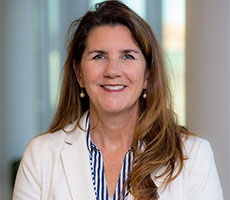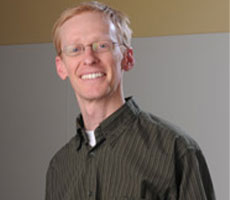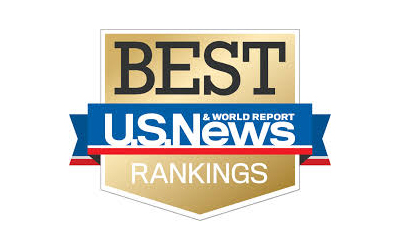____
Inclusive partnershipResearch and Innovation
National leaders in practice-based, community participatory, and practice redesign and improvement research.

Jodi Holtrop, PhD, MCHES
Vice Chair for Research
Welcome to the Department of Family Medicine - Research & Innovation.
Our research mission is simple: To improve community health and well-being through high-quality research in patient-centered family medicine using holistic and integrative models of health.
We are innovators and experts in the discovery and dissemination of new knowledge through translational and practice-based research.
We serve as the primary resource for family medicine practices, by providing knowledge, health information technology and practice transformation tools and guidance to satisfy the Quadruple Aim of improving the health of populations, enhancing the experience of care for individuals, reducing the per capita cost of health care, and attaining joy in work.
We continuously push to expand the reach of our practice-based research networks to more effectively support practices, share information, develop and sustain a dynamic learning community and bring value to our stakeholders by answering their questions.
We are here for you, your community, and your health.
RESEARCH HIGHLIGHT
Health Equity Research
____
Attention to DEIA in team composition____
Authentic community engagement____
Need for continuous growth, learning, self-reflection____
Moving from documenting to dismantling health inequities____
Use of appropriate theoretical models and frameworks, such as a public health critical race praxis
____
A proactive, comprehensive, and continuous appraisal of how equity may disproportionately affect oppressed people
The Answer Bank
Help For Family Medicine Practices In The Time Of COVID-19
Robert | Family Medicine Aug 7, 2020
Editor's Note:
The Spring of 2020 brought on the new reality created by the COVID-19 pandemic.
Our “normal” was put on hold. We hunkered down and social distanced.
Millions across the country lost their jobs and the economy cratered.
Closer to home, Colorado family medicine practices suffered greatly – especially smaller, privately owned and operated practices.
Without the safety net of a large corporate entity, they struggled and continue to struggle to adapt to things like standing up robust telehealth infrastructure, enacting appropriate safety protocols for patients and medical staff, and convincing their patients that it is safe to come back into the clinic.
They need answers, ideas, resources, and someone to talk to.
That’s where the University of Colorado Department of Family Medicine (DFM) comes in.
Recognizing the need, DFM faculty and researchers designed and implemented The Answer Bank – a web-based tool created to connect practices in need with colleagues with the experience in facing the COVID crisis head-on.
 DFM’s Doug Fernald led the Answer Bank efforts. He describes the need, the process, and the potential in this DFM Research Reachout.
DFM’s Doug Fernald led the Answer Bank efforts. He describes the need, the process, and the potential in this DFM Research Reachout.
Q: Can you briefly describe how the idea for the Answer Bank came about?
A: When Frank DeGruy called together folks to respond to family medicine practices in crisis due to COVID, there were a number of emails from people on that call asking questions and then getting specific, personal responses. At that time it seemed like we should systematically gather up those questions and answers for future reference.
Q: How will this work?
A: If this works, ideally it will function like a “help desk.” Questions or answers will come into the Answer Bank, they’ll be reviewed and tagged. If there is an answer to a question, the help desk can send it back to the submitter—ideally, along with the name of the person who provided the answer so that the submitter can follow up and ask more detailed questions. If there is not an answer the question is forwarded to a panel of volunteer experts to review and respond. This effort relies on people from the SNOCAP, Practice Innovation Program, research staff and faculty, the CAFP, and, most importantly, the volunteers who are part of the ART2 network of family medicine practices.
Q: Do you see this as a COVID response mechanism, exclusively, or does this have legs beyond the pandemic?
A: We hope this goes beyond COVID. There will be new crises to face—ones we have yet to name.
Q; Beyond triaging practice needs and questions, are you planning on any data collection to help understand the extent of the impacts of the COVID crisis on family practices?
A: This might fail and that’s an important lesson to understand. Part of the purpose of this is to also learn as we go and share what we learn. The data we collect can be summarized in terms of the content of the questions or answers, along with how we respond. If there is anything to share, we’ll communicate back out through our partners.
Q: What so you see as the major benefits of this outreach and support of the practices, for DFM, and for family medicine in Colorado as a whole?
A: What I think makes this different from other resources practices can find, is that it tries to connect individuals to individuals with a personalized response. Sometimes basic information is enough. But often, we want to have a quick conversation with someone who’s tried a solution. We want to ask questions about the nuances of actually implementing something in practice.
Contact:
Jodi Holtrop, PhD, MCHES
Vice Chair for Research
jodi.holtrop@cuanschutz.edu
Carlee Kreisel, MPH
Research Services Specialist
carlee.kreisel@cuanschutz.edu
(For website updates)
Our Top Priority
YOU
Dedicated to Your
Health
Our Team
285+
#7 in the Best Departments of Family Medicine 2023

